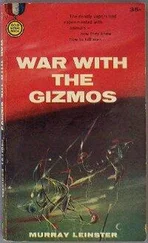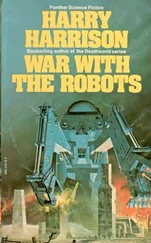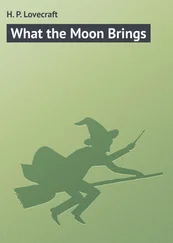David Durham - Acacia,War with the Mein
Здесь есть возможность читать онлайн «David Durham - Acacia,War with the Mein» весь текст электронной книги совершенно бесплатно (целиком полную версию без сокращений). В некоторых случаях можно слушать аудио, скачать через торрент в формате fb2 и присутствует краткое содержание. Жанр: Фэнтези, на английском языке. Описание произведения, (предисловие) а так же отзывы посетителей доступны на портале библиотеки ЛибКат.
- Название:Acacia,War with the Mein
- Автор:
- Жанр:
- Год:неизвестен
- ISBN:нет данных
- Рейтинг книги:3 / 5. Голосов: 1
-
Избранное:Добавить в избранное
- Отзывы:
-
Ваша оценка:
- 60
- 1
- 2
- 3
- 4
- 5
Acacia,War with the Mein: краткое содержание, описание и аннотация
Предлагаем к чтению аннотацию, описание, краткое содержание или предисловие (зависит от того, что написал сам автор книги «Acacia,War with the Mein»). Если вы не нашли необходимую информацию о книге — напишите в комментариях, мы постараемся отыскать её.
Acacia,War with the Mein — читать онлайн бесплатно полную книгу (весь текст) целиком
Ниже представлен текст книги, разбитый по страницам. Система сохранения места последней прочитанной страницы, позволяет с удобством читать онлайн бесплатно книгу «Acacia,War with the Mein», без необходимости каждый раз заново искать на чём Вы остановились. Поставьте закладку, и сможете в любой момент перейти на страницу, на которой закончили чтение.
Интервал:
Закладка:
CHAPTER
Leodan Akaran was a man at war with himself. He carried on silent conflicts inside his head, struggles that raged one day into the next without resolution. He knew it was a weakness in him, the fault of having a dreamer’s nature, a bit of the poet in him, a scholar, a humanist: hardly traits fit for a king. He enveloped his family in the luxurious culture of Acacia, even as he hid from them the abhorrent trade that funded it. He planned for his children never to experience violence firsthand, even though this privilege was bought with a blade at others’ necks. He hated that countless numbers throughout his lands were chained to a drug thatguaranteed their labor and submission, and yet he indulged in the same vice himself. He loved his children with a breathless passion that sometimes woke him in terror from dreams of some misfortune befalling them. But he knew that agents working in his name ripped other parents’ children from their arms, never to be seen again. It was monstrous, and in many ways he felt it was his fault.
He had not instigated any of these things himself; like his children he had been born into it. He had grown up on the same tales he was now sharing with his youngest. He had learned the same reverence for the early heroes of his nation. He had practiced the Forms, stared respectfully at dignitaries from around the empire, and believed uncritically that his father was the rightful ruler of the entire world.
When he first saw the mines of Kidnaban as a boy of nine-the gaping chasms carved into stone, masses of humanity naked but for loincloths, laboring like thousands of insects in human form-he simply did not understand it. He could not fathom why those men and boys would choose such a life, and he did not ask why the day left twisted knots of anxiety in his abdomen. But just after his fourteenth birthday he had learned in quick succession that those mine laborers were conscripted from each of the provinces, that the heads of the various nations that visited Acacia were the privileged few, the very ones entrusted with the suppression of the bulk of their people.
This was shocking enough, but it was learning of the Quota that prompted him to action. In the throes of righteous adolescence, he went to his father, full of reproach. He came fresh from the lesson that introduced him to it and broke in on his father at sword practice. Was it true, he asked, that since Tinhadin’s time they had provided a yearly quota of slaves to a nation across the Gray Slopes? Was it true that agents in the Akaran name collected hundreds of boys and girls from the provinces, children sold and never seen again? Was it true that no one even knew to what labor or fate those children were banished? Was it true that these foreigners-the Lothan Aklun-paid for the slaves with a vast supply of a drug that kept much of the empire addicted and dependent?
Gridulan broke off his fencing. He tipped the point of his naked sword into the mat at his feet and looked at his son over the upraised stretch of his nose. He was a tall man-Leodan would never reach his height-with a stiff, military bearing. His companions-thirteen men he had known since boyhood-dotted the training space, a few fencing, the bulk of them standing beside one of the pylons, conversing. “Those things are true, yes,” Gridulan said. “The Lothan Aklun also promised that they would never wage war against us. This is something we should be thankful for. Tinhadin wrote that they were each like serpents with a hundred heads. I am glad that you are learning the realities of rule, but I do not care for-”
The young Leodan had interrupted then, his voice low, venomous, altogether unusual for him. The notion of slavery seemed a personal insult to him, such a foul thing that he could not hold back his anger. “How can you permit such an abomination in your name? We should do away with it at once, even if it means war with these Lothans. This is the only honorable course. If you do not do it, then when I am-”
Leodan might have been able to respond to the king’s movement had it not been so unexpected. Gridulan switched his sword to his left hand, stepped forward, and slapped his son with an upsweeping force enough that the boy’s head tilted toward the roof. He fell back, stumbling. As Leodan placed a hand to the stinging heat of his cheek, his father railed at him. He hissed that everything they had came from this very thing. To do away with it not only endangered all their lives but also denigrated the memory of the entire Akaran line, all of whom had seen the Quota as just. Only a fool would value the freedom of a few over the welfare of an entire nation.
“This thing has been done for generations,” Gridulan said, speaking close to his son’s face. “Tinhadin himself agreed to it. Who are you to doubt his wisdom? If that is not enough for you, consider that I do not command the army. In name, yes, but in truth the various portions of the army answer first to their governors. The governors, in turn, bow to the wishes of the league. And the league would never allow the Quota to be repealed. Instead they would connive behind our backs. They would arrange to destroy us and place somebody else upon the throne, understand? Then we would have nothing, and you would find yourself pining for the time lived blessed by this abomination. You might be sold as a slave yourself. There are many in Alecia who would welcome the irony of that.”
“Does it mean nothing to be a king, then?” Leodan asked, bracing himself for another blow.
Gridulan did not strike him again, though. His answer had more the quality of sadness to it than anger. “Of course I am a powerful man, but I am powerful because I am well placed in the dance of empire. I know the rules and step accordingly. But the dance is bigger than me, Leodan. It is a bigger thing than you. Perhaps this is too large a thing for you to understand yet. You want peace and fairness and justice for all, but your way would lead to none of these things.”
The king straightened, stretched his legs, and hefted his sword loosely in his hand. Before he turned back to his fencing partner he said, “Really, Leodan, you must study for years more yet before you challenge me. Do not speak of this again in public, even before my trusted men.”
Leodan, sitting on the sill of one of the large windows of his library, wondered if his father had at that point hardened his heart enough to become the murderer the coming years would prove him to be. He shook off the thought. He was spending too much time in the past, he knew. It was hard not to, especially on an evening like this, when the air seemed hushed with melancholy.
Though Acacia sat in a temperate zone well placed between the arid bushlands of Talay and the frigid expanse of the Mein, on occasion the island was visited by weather cold enough to allow snowfall. Usually this was no more than a dusting or two throughout a winter. A true accumulation came once every four or five years. This evening-the night of the Aushenian banquet-happened to be one of these, a late storm that ended a run of mild weather.
Snow had started with a few forlorn flakes twirling down through the dull light of late afternoon. By the early evening the clouds floated so low as to brush the spire points of the palace’s highest towers. They let loose a bombardment of white, puffy balls that fell in perfectly straight lines, pulled down by an appearance of weight at odds with their fragile nature.
In the short period of solitude after his afternoon meetings and before he had to prepare for the banquet, Leodan sought the seclusion of the library. It was a temporary reprieve, and already he felt it drawing to a close. He walked the deserted chamber with his eyes tilted up at the books, so many thousands of volumes. There was a book here that was supposed to be written in the language the Giver had used to create the world. As ever when he was alone here, he felt himself drawn to it.
Читать дальшеИнтервал:
Закладка:
Похожие книги на «Acacia,War with the Mein»
Представляем Вашему вниманию похожие книги на «Acacia,War with the Mein» списком для выбора. Мы отобрали схожую по названию и смыслу литературу в надежде предоставить читателям больше вариантов отыскать новые, интересные, ещё непрочитанные произведения.
Обсуждение, отзывы о книге «Acacia,War with the Mein» и просто собственные мнения читателей. Оставьте ваши комментарии, напишите, что Вы думаете о произведении, его смысле или главных героях. Укажите что конкретно понравилось, а что нет, и почему Вы так считаете.











